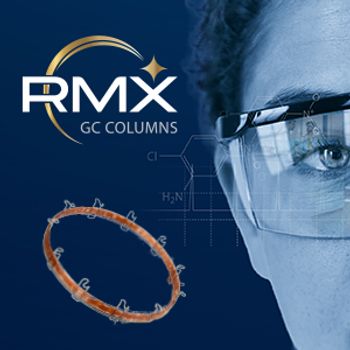
ACD/Labs Launches New Version of Spectrus Platform Applications
ACD/Labs, a leading informatics company specializing in software for digitalizing R&D, has announced the release of version 2024 of its Spectrus Platform applications.
ACD/Labs, a leading informatics company specializing in software for digitalizing research and development (R&D) based in Toronto, Ontario, has announced the release of version 2024 of its Spectrus Platform applications (1). This new release underscores the company's commitment to enabling life sciences organizations to fully leverage their R&D data for artificial intelligence (AI) and machine learning (ML) applications (2).
AI and ML have increasingly been used in analytical chemistry. One of the benefits of AI and ML applications is that it could simplify and interpret large-scale data and optimize experimental procedures, which are two of the most common problems analytical chemists encounter in their work (3). Both are also used to analyze spectra (3).
This update to ACD/Labs analytical and chemical knowledge management software is intended to help laboratory scientists make quicker, well-informed decisions and collaborate, the company said in a press release (2). The Spectrus software integrates AI into chemistry workflows and enable life sciences organizations to better leverage their data.
Andrew Anderson, vice president of Innovation and Informatics Strategy at ACD/Labs, emphasized the importance of digitalization in unlocking R&D data's potential in a statement.
“Life sciences organizations have made strides in breaking down data silos and digitalizing processes, but the variety of instrumentation, systems, and workflows makes it challenging,” Anderson said in a press release. “While vast amounts of data are generated, normalization and context for secondary use by data scientists and machines is a relatively new problem in many labs. We will continue to support our customers and anticipate their needs through the development and modernization of our software stack.”
Despite progress in breaking down data silos, the complexity of instrumentation, workflows, and data normalization still poses challenges. ACD/Labs aims to continue addressing these issues by evolving its software solutions to meet the needs of its clients (2).
Version 2024 brings enhancements to several of ACD/Labs' key software offerings, including Luminata and Katalyst D2D (4). These updates offer critical improvements for pharmaceutical process development, chemistry manufacturing and control (CMC), and high throughput experimentation (HTE) (4). Key features include support for accelerated stability studies, which assist in determining drug shelf life and expiry, as well as improved integration with third-party systems to enhance data integrity and reduce manual tasks (4). Additionally, integrated AI tools have been introduced to streamline decision-making for laboratory scientists.
For over a decade, the Spectrus Platform software has provided scientists with processed, consolidated data from various analytical instruments and techniques. This software suite is used in R&D for tasks such as structure elucidation, quality control, and process monitoring (2). The 2024 update delivers improvements in qualitative and quantitative analysis through techniques like nuclear magnetic resonance (NMR) and mass spectrometry (MS), as well as better visualization of analytical data. Enhanced collaboration tools will enable researchers to manage data more effectively, while advancements in automated structure verification (ASV) are expected to boost laboratory productivity (4).
ACD/Labs is also continuing to expand its browser-based tools, with significant updates to Spectrus Processor JS and Spectrus Manager JS, which improve analytical data handling and user functionality (4).
ACD/Labs has been at the forefront of scientific software development for 30 years, supporting organizations in the chemical and pharmaceutical industries with AI-ready, cloud-enabled, and FAIR-compliant solutions. The company’s mission is to serve the research and development community with the latest software technology that allows their customers to handle any changes to R&D (1). Their clients come from a variety of industries, including chemical, pharmaceutical, food and beverage, agrochemical, environmental, government, and education (1).
References
- ACD/Labs, Our Company. ACD/Labs.com. Available at:
https://www.acdlabs.com/about/ (accessed 2024-09-18). - ACD/Labs, Spectrus – Standardized Analytical Data Processing & Knowledge Management. ACD/Labs.com. Available at:
https://www.acdlabs.com/products/spectrus-platform/ (accessed 2024-09-18). - Rial, R. C. AI in Analytical Chemistry: Advancements, Challenges, and Future Directions. Talanta 2024, 274, 125949. DOI:
10.1016/j.talanta.2024.125949 - ACD/Labs, What's New in the Current Software Version. ACD/Labs.com. Available at:
https://www.acdlabs.com/technical-support/current-software-versions/ (accessed 2024-09-18).
Newsletter
Join the global community of analytical scientists who trust LCGC for insights on the latest techniques, trends, and expert solutions in chromatography.




